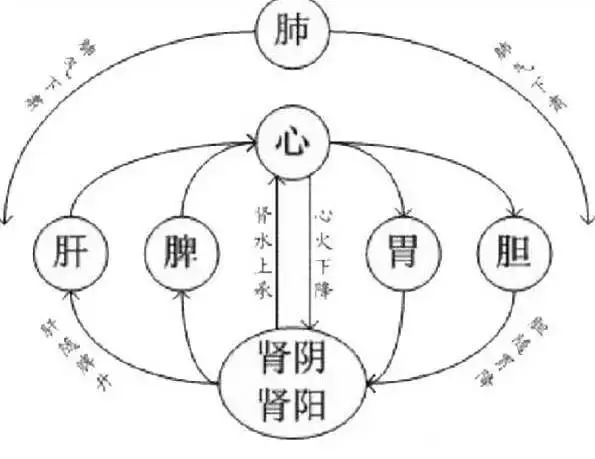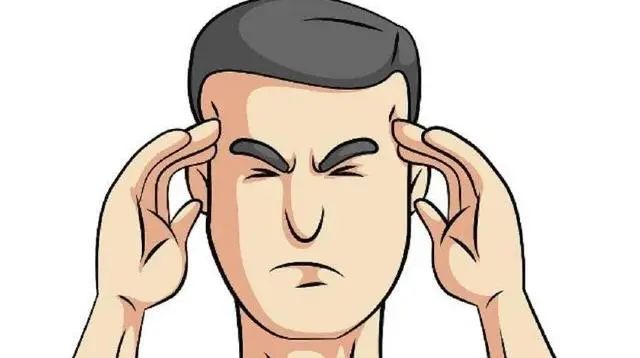The seven emotions refer to the normal emotional activities of joy, anger, worry, thought, sadness, fear, and shock. These are physiological and psychological responses of the body’s organs to changes in the internal and external environment, and they generally do not lead to or induce disease.
However, we often hear that excessive worry and thought can lead to illness. Why is that? How do emotions cause disease? Let’s explore further.


Internal Injury from the Seven Emotions
Sudden, intense, or prolonged emotional responses that exceed the body’s physiological and psychological adaptive and regulatory capacity can lead to damage to the organs and dysfunction. Alternatively, if the body’s vital energy (zheng qi) is weak, the organs may be deficient in vital energy, making them less able to adapt and regulate in response to emotional stimuli. In both cases, the seven emotions can act as a pathogenic factor, leading to disease. This phenomenon is referred to in Traditional Chinese Medicine (TCM) as “internal injury from the seven emotions”.


Characteristics of Disease Caused by Internal Injury from the Seven Emotions
1
Direct Damage to the Internal Organs
(1) Damage to Corresponding Organs
When emotional responses are excessive, they can damage the corresponding organs. For example, excessive joy can harm the heart, excessive anger can harm the liver, excessive worry can harm the spleen, excessive sadness can harm the lungs, and excessive fear can harm the kidneys.
(2) Impact on the Spirit
TCM believes that the heart governs the spirit, and all emotions arise from the heart. Therefore, internal injury from the seven emotions can affect the spirit, leading to restlessness or even mental disorders.
(3) Easily Damages the Heart, Spleen, and Liver
The heart, spleen, and liver play important roles in physiological and emotional activities, making them particularly susceptible to damage from emotional injuries.
(4) Easily Damages Organs with Latent Diseases
Latent diseases refer to conditions that exist without obvious clinical manifestations. The organs affected by latent diseases are those where such conditions are present.
If the vital energy of these organs is already deficient, they are more susceptible to injury from emotional disturbances.

2
Impact on the Qi Mechanism of the Organs

The movement of qi in and out of the organs is closely related to emotional changes. When emotions cause internal injury to the organs, the first impact is on the qi mechanism, leading to abnormal rising and falling of qi and corresponding clinical manifestations.
Anger causes qi to rise, and extreme anger can lead to liver qi rebellion, even causing blood to follow the rebellious qi.
Joy causes qi to relax; excessive joy can scatter the heart qi or cause the spirit to become distracted.
Sadness causes qi to dissipate; excessive sadness can deplete lung qi or disrupt its descending function.
Fear causes qi to descend; excessive fear can lead to kidney qi instability, causing qi to sink.
Shock causes qi to become chaotic; sudden shock can lead to restlessness of the spirit and chaotic qi movement.
Overthinking harms the spleen, leading to stagnation of spleen and stomach qi, resulting in abnormal rising and falling and impaired transformation.

3
Commonly Associated with Emotional Disorders

Emotional disorders refer to conditions that are related to emotional stimuli and exhibit abnormal emotional manifestations.
Firstly, emotional stimuli can directly lead to the occurrence of emotional disorders, such as depression and mania. Secondly, excessive emotions can induce and exacerbate certain diseases, such as chest obstruction, true heart pain, and dizziness. These diseases are primarily caused by dysfunction of qi and blood in the organs, and emotional stimuli can disrupt the balance of qi and blood, worsening the condition.

4
Impact on Disease Progression
If the emotions are positive or optimistic, they can facilitate improvement or even recovery from illness.
Conversely, negative or pessimistic emotions, or intense fluctuations in emotions, can trigger the onset of disease or worsen the condition.


It seems that the impact of the seven emotions on health is no joke. I hope everyone can maintain a good mood in daily life and live healthily and peacefully every day!


Further Reading
(1) Sun Guangren, Zheng Hongxin. Fundamentals of Traditional Chinese Medicine Theory [J]. 2012.



